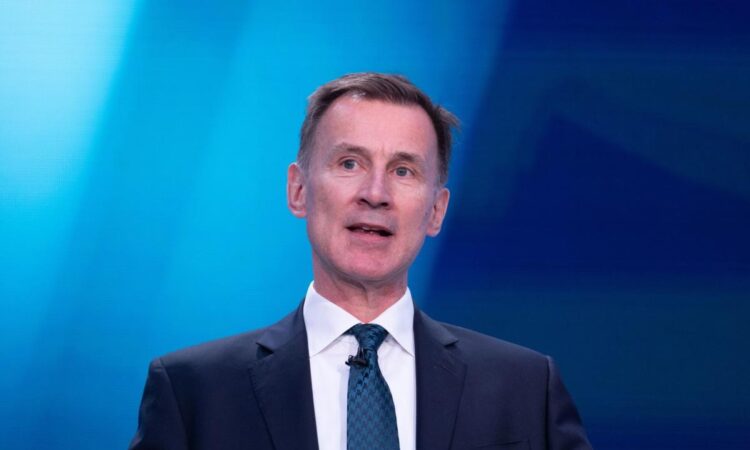
(Bloomberg) — Chancellor of the Exchequer Jeremy Hunt has considered scrapping Britain’s non-domiciled tax status as he seeks ways to fund pre-election giveaways in his budget next week.
Most Read from Bloomberg
Abolishing the non-dom status, which allows about 70,000 people to avoid paying tax on their overseas earnings, is one measure on a list of options being held in reserve by Hunt if his fiscal position deteriorates, according to a person familiar with the matter. The move is currently not considered necessary but may be needed if economic forecasts from the Office for Budget Responsibility worsen, the person said.
Hunt is having to consider such measures given strong pressure from Conservative MPs to deliver eye-catching tax cuts in his budget on March 6 that would help close a significant polling gap against the opposition Labour Party ahead of a general election expected later this year. He’s in a tight spot given that his current economic position for the budget is weak, having just £13 billion ($16.5 billion) of headroom against his key fiscal rule, which is near historic lows.
The Treasury declined to comment on the non-dom considerations, which were first reported by the Financial Times. Hunt is due to receive another round of forecasts from the OBR late Wednesday and a final round Friday.
Hunt had previously commissioned officials in the Treasury to consider the impact of scrapping the non-dom status, after economists at the London School of Economics and the University of Warwick projected that the move would bring in as much as £3.2 billion in tax revenues. When asked about the idea in 2022, Hunt said he was worried that removing the status would drive non-doms away from Britain.
Non-doms are British residents who are not domiciled in the UK for tax purposes. Defenders of the non-dom regime say it attracts wealthy entrepreneurs, who create companies and jobs. Labour has pledged to end the exemption if it wins power.
The tax status became a particular point of controversy in 2022 after it emerged that it was enjoyed by Prime Minister Rishi Sunak’s wife, Akshata Murty. Murty has since agreed to pay UK tax on her overseas earnings.
Separately, the Financial Conduct Authority is said to be resisting an effort from Hunt to make pension funds disclose the level of their UK investments, according to the FT. The regulator has argued against a push for it to produce rules requiring more geographical disclosures from defined contribution funds, saying that it doesn’t fall under its mandate, the FT said, citing an unnamed source.
(Adds pension fund debate in final paragraph.)
Most Read from Bloomberg Businessweek
©2024 Bloomberg L.P.






